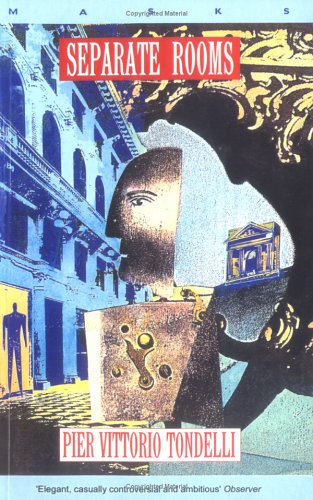Reviewed by brokentune on
Separate Rooms started out great with the story of Leo who travels to say his farewells to his dying ex-lover Thomas. Whilst sitting on the plane, Leo, an Italian writer in his 30s, reminisces over the years he shared with Thomas and the gap that is left in his own life after Thomas left and which is now irreparable with Thomas' death.
One of the strong points of Tondelli's story is that, written in the late 1980s, he tried to deviate from stereotypes and show his characters as the bewildered, flawed, clueless humans they are. As I followed their travels, or rather flight, from city to city and the drug filled escapades, I'm not sure if he properly succeeded in this. What Tondelli did succeed in, however, was to portray the struggle that his MC has with a society that does not recognise the relationship between the two men and does not accept Leo or, rather his need to feel part of something bigger than him.
The following passage was particularly striking:
"In his last moments, Thomas is back in the family fold, with the same people who brought him into the world. Now, with their hearts torn asunder by suffering, they are helping Thomas to die. There is no room for Leo in this parental reconciliation. Leo is not married to Thomas. He has not had children with him.Neither of them bears the other's name at the registry office, and there is not a single legal record on the face of the earth that carries the signatures of witnesses to their union. Yet for more than three years they have been passionately in love with one another. They have lived together in Paris and Milan, and they have travelled together, played music together and danced together. They have quarrelled and abused each other, and even hated each other. They have been in love. But it is as if, without warning, beside that deathbed, Leo realised that he had experienced not a great love story, but rather some little school crush. As if they were telling him: You've both had a good time, and that's okay, too. But here we're fighting a life and death struggle. Here a life is at stake. And we - a father, a mother and a son - are what really matters."
Unfortunately, the second half of the book dragged. A lot. There were passages about Catholicism that I skipped - I already had a pretty good impression of Leo's views and his traditional Italian upbringing.
It is remarkable that the book is not more widely known - even GR reviews seem to be mostly in Italian.
Reading updates
- Started reading
- 2 July, 2015: Finished reading
- 2 July, 2015: Reviewed
